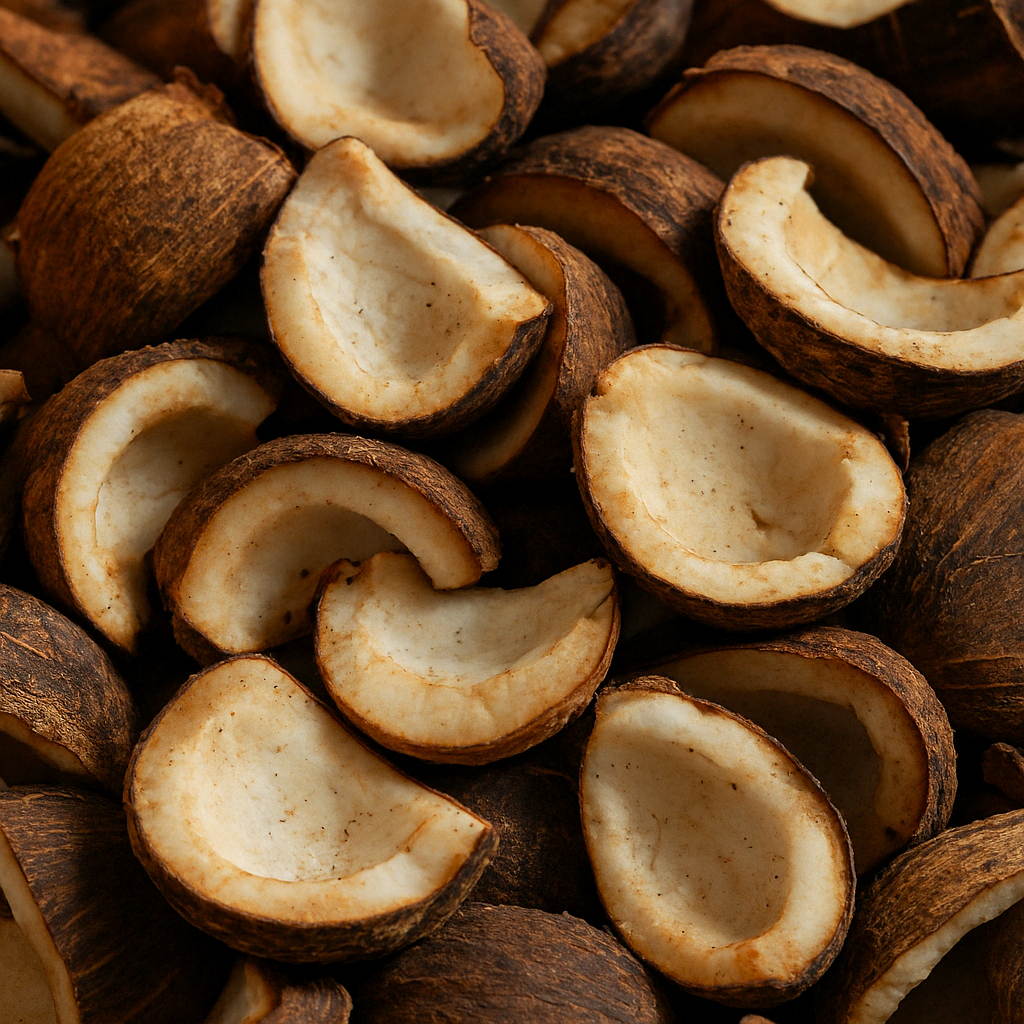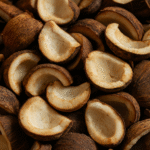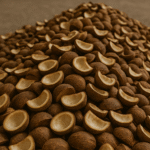Copra: The Dried Coconut Kernel With Global Value
Copra is dried coconut meat, rich in oil, widely used in cooking, cosmetics, and industry. A valuable export from tropical regions like Indonesia and the Philippines.

What is Copra?
Copra refers to the dried meat or kernel of the coconut, primarily processed to extract coconut oil. It plays a crucial role as an agricultural product in many tropical regions, forming the backbone of various industries, including food, cosmetics, biofuel, and animal feed
Types of Copra
- Sun-Dried Copra: The most prevalent drying method, though it is susceptible to mold if not executed properly
-
Smoke-Dried Copra: This variant is dried over a fire, imparting a darker hue and a distinct smoky flavor.
-
Kiln-Dried Copra: Dried in controlled conditions to ensure uniformity and hygiene, this method is often preferred for high-quality exports.
Main Uses of Copra
- Coconut Oil Production: The primary application of copra, where the dried meat is processed into both edible and industrial-grade coconut oil, including cooking oil and virgin coconut oil (VCO).
- Animal Feed (Copra Cake/Meal): The byproduct of oil extraction, known as copra cake or copra meal, is protein-rich and utilized as livestock feed, particularly for cattle and pigs.
- Cosmetic & Skincare Products: Coconut oil derived from copra is commonly found in soaps, lotions, shampoos, creams, moisturizers, and hair conditioners.
- Pharmaceuticals & Herbal Remedies: Coconut oil serves as a carrier oil for essential oils, balms, ointments, and is also used in softgel capsules for health supplements.
- Biofuel & Industrial Applications: Copra oil is additionally used in bio-lubricants, biodiesel, and other industrial processes due to its stability and fat content.
Benefits of Copra and Its Oil
- Rich in Healthy Fats: Contains medium-chain triglycerides (MCTs) that are readily digestible and provide quick energy.
- Antimicrobial Properties: Coconut oil consists of lauric acid, recognized for its ability to combat bacteria and fungi.
- Long Shelf Life: When kept dry, dried copra can be stored for months, enhancing its value as an exportable product.
- High Economic Value: Copra significantly contributes to the coconut industry and bolsters rural economies in producing nations such as Indonesia, the Philippines, and India.
- Versatility: Copra is instrumental across a range of sectors, including food, health, cosmetics, energy, and agriculture.
Countries That Use or Export Copra
- Top Producers: Indonesia, Philippines, India, Sri Lanka, and Papua New Guinea are among the largest producers of copra.
-
Importing Countries: The United States, European Union, China, Japan, and South Korea import copra or coconut oil for industrial and consumer uses.
-
Global Demand: The global market for coconut oil and copra-based products continues to grow due to rising interest in natural, organic, and plant-based products.


